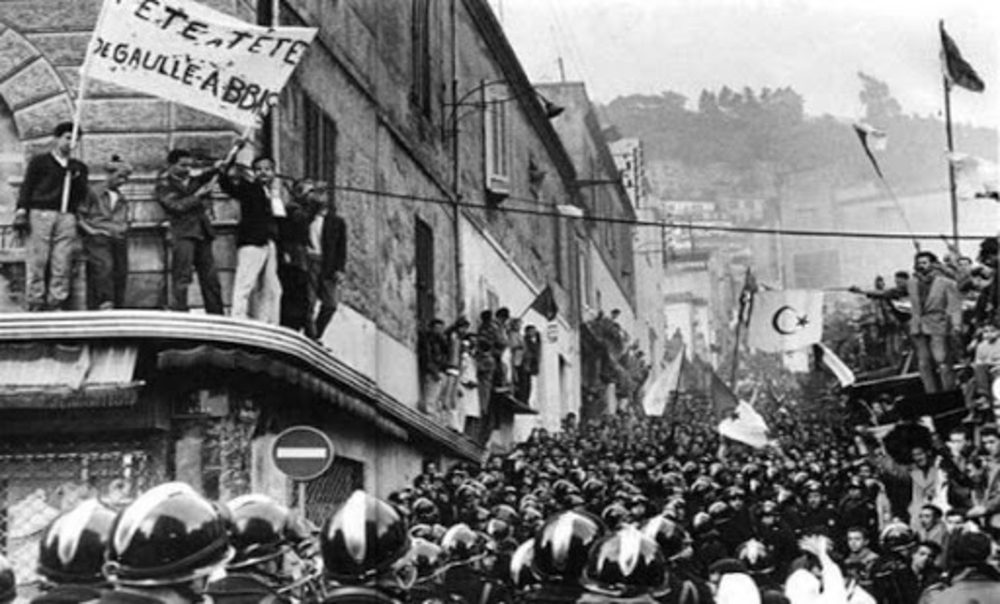At the heart of the tumultuous years of the Algerian War, a date remains engraved in the collective history of Algeria: December 9, 1960. On that day, the town of Aïn Temouchent became the scene of a demonstration which would mark a major turning point in the struggle for Algerian independence. Through the story of this historic moment, we dive into the heart of Algerian resistance and international diplomacy.
De Gaulle in Algeria: A Controversial Visit
General Charles de Gaulle, President of the French Republic, decided to go to Algeria in December 1960, despite the warnings of his advisors. The latter had tried to dissuade him from this high-risk visit, but De Gaulle was determined to make his voice heard in this disputed land.
The town of Aïn Temouchent was chosen for this visit because of its large European population and settlers, a population supposedly favorable to the French presence in Algeria. De Gaulle’s advisors hoped that these factors would guarantee his safety and the success of his visit.
December 9, 1960: A City in Boiling
On December 9, 1960, General De Gaulle landed in Aïn Temouchent with an agenda including a public speech aimed at promoting his political vision for Algeria. However, he was quickly caught off guard by a march organized by young Algerians.
This peaceful march quickly transformed into a vast popular demonstration. The demonstrators carried the independence flag high and chanted slogans in favor of Algerian sovereignty. Law enforcement and supporters of colonial order opposed the demonstrators, plunging the city into temporary chaos.
The Spark that Ignited Algeria
The demonstrations in Aïn Temouchent were not limited to this city. Indeed, they quickly spread to other regions, including Oran, Biskra and Algiers. French security forces responded to these demonstrations with brutal repression. The images of police violence shocked international public opinion.
News of these events reached the United Nations, where a session was in progress. The Algerian delegates and the countries supporting the Algerian cause succeeded in imposing the examination of the Algerian “question” at the UN. A week later, on December 19, 1960, a resolution was adopted, urging France to begin negotiations with a view to restoring the dignity and national sovereignty of the Algerian people.
December 9, a Key Date
The day of December 9, 1960 remains a key date in the chronology of the Algerian War. The Aïn Temouchent protests marked a decisive turning point, pushing the question of Algerian independence onto the international stage. They contributed to making the voice of the Algerian people heard and to putting an end to a war which had already caused too many victims.
Algerian resistance and international diplomacy converged that day to change the course of history. December 9 showed the determination of the Algerian people to regain their freedom and reminded the entire world that struggles for justice and national sovereignty cannot be crushed by force.
Thus, on December 9, 1960, the aborted visit of General De Gaulle to Aïn Temouchent remains a symbol of resistance and determination for the independence of Algeria, a powerful reminder of the impact that the courageous acts of a people in search of freedom.









